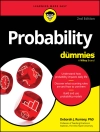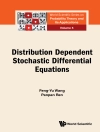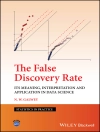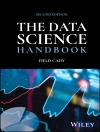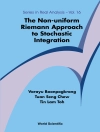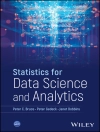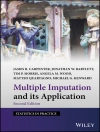This book is a stimulating panoramic tour – quite different from a textbook journey – of the world of statistics in both its theory and practice, for teachers, students and practitioners.
At each stop on the tour, the authors investigate unusual and quirky aspects of statistics, highlighting historical, biographical and philosophical dimensions of this field of knowledge. Each chapter opens with perspectives on its theme, often from several points of view. Five original and thought-provoking questions follow. These aim at widening readers’ knowledge and deepening their insight. Scattered among the questions are entertaining puzzles to solve and tantalising paradoxes to explain. Readers can compare their own statistical discoveries with the authors’ detailed answers to all the questions.
The writing is lively and inviting, the ideas are rewarding, and the material is extensively cross-referenced.
A Panorama of Statistics:
* Leads readers to discover the fascinations of statistics.
* Is an enjoyable companion to an undergraduate statistics textbook.
* Is an enriching source of knowledge for statistics teachers and practitioners.
* Is unique among statistics books today for its memorable content and engaging style.
Lending itself equally to reading through and to dipping into, A Panorama of Statistics will surprise teachers, students and practitioners by the variety of ways in which statistics can capture and hold their interest.
Reviews:
‘As befits the authors’ statement that ’this is not a textbook’, the structure is unusual. There are twenty-five chapters organised in five sections, each beginning with a brief perspective of a theme in statistics and finishing with five questions related to that theme. The answers provided to the questions, in section six, are as discursive and illuminating as the main body of the text. Even if you are pretty sure you know the answer, it is always worth checking what the authors have to say. Chances are that you will learn something every time. The glimpses and insights given into this enormous and far-reaching discipline succeed in being bewitching, entertaining and inviting; coverage was never the aim.’
‘In summary, this splendid book lives up to the four ‘p-values’ of its title. It is panoramic in the scope of its survey of statistics, it is full of illuminating perspectives, it sets entertaining and challenging puzzles, and it explores fascinating paradoxes. Read it, enjoy it and learn from it.’
From Neil Sheldon, Teaching Statistics, volume 9, no. 2, May 2017
Inhoudsopgave
Preface ix
Acknowledgments xi
Part I Introduction 1
1 Why is statistics such a fascinating subject? 3
2 How statistics differs from mathematics 13
3 Statistical literacy – essential in the 21st century! 20
4 Statistical inquiry on the web 26
Part II Statistical description 33
5 Trustworthy statistics are accurate, meaningful and relevant 35
6 Let’s hear it for the standard deviation! 43
7 Index numbers – time travel for averages 50
8 The beguiling ways of bad statistics I 59
9 The beguiling ways of bad statistics II 66
Part III Preliminaries to inference 75
10 Puzzles and paradoxes in probability 77
11 Some paradoxes of randomness 84
12 Hidden risks for gamblers 91
13 Models in statistics 99
14 The normal distribution: history, computation and curiosities 107
Part IV Statistical inference 115
15 The pillars of applied statistics I – estimation 117
16 The pillars of applied statistics II – hypothesis testing 122
17 ‘Data snooping’ and the significance level in multiple testing 129
18 Francis Galton and the birth of regression 135
19 Experimental design – piercing the veil of random variation 141
20 In praise of Bayes 149
Part V Some statistical byways 157
21 Quality in statistics 159
22 History of ideas: statistical personalities and the personalities of statisticians 165
23 Statistical eponymy 178
24 Statistical ‘laws’ 182
25 Statistical artefacts 192
Part VI Answers 197
26 Answers to the chapter questions 199
Index 306
Over de auteur
Eric Sowey, School of Economics, The University of NSW, Australia. Eric has 40 years’ experience in teaching statistics and econometrics at all undergraduate and postgraduate levels and holds a UNSW Vice-Chancellor’s Award for Excellence in Teaching.
Peter Petocz, has been a statistics educator and researcher in statistics education for several decades. He is the author of numerous academic journal articles, book chapters and refereed conference presentations on various aspects of statistics pedagogy (over 40 during the last decade). Peter has been co-editor of the Statistics Education Research Journal (SERJ) since 2008, and has been involved with organising the two most recent International Conferences on Teaching Statistics.



